|
Check out this new book by David Burkus on the myths of creativity. This may help novice entrepreneurs understand and more systematically go through the process of venture idea generation (and selection). Looking forward to the book release in 2014.
0 Comments
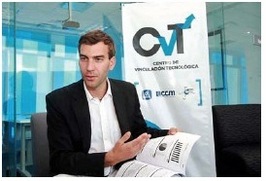 Monterrey, Mexico (August 15th and 16th) - Dr. Peter Vogel (Founder of The Entrepreneurs' Ship and Entrepreneurship researcher at the Ecole Polytechnique Fédérale de Lausanne) was invited by the Cámara de la Industria de la Transformación en Nuevo Leon (CAINTRA) to give an executive training with policymakers, entrepreneurs and corporate CEOs on building a MedTech cluster in the region of Monterrey (Mexico). This two-day intensive training was composed of several different components including an in-depth cluster analysis of the Swiss MedTech Ecosystem, an analysis of the regional actors and factors in Monterrey that can form the basis to build a healthy MedTech cluster as well as possible avenues for innovative developments that are aligned with the cluster's strategy.
 Interviewee: John Roberts (American) Region: Africa Category: Higher education With the collapse of the labor market and unemployment issues, education is becoming fundamental to business survival and hindrance of a life in poverty. Especially in lesser-developed countries, it is vital to get an education to ensure a future. The Open University of West Africa (OUWA) was founded in founded in Ghana the November 2011 and currently 40 students are enrolled in their first undergraduate program, which are expected to graduate in 2015. OUWA offers two programs; a non-degree granting business program, and a diploma in general education. OUWA is currently working on a Physicians Assistant degree and a Diploma in Sustainable Agriculture. The goal for OUWA is to break the poverty cycle in West Africa, through education, incubation and investment. John Roberts grew up in Southern California and founded his first project in his early twenties, serving food to the homeless in this neighborhood four times a week. In 2007, John graduated from the American University of Pairs with a bachelor in International Affairs. Later, in 2011 he received his master of Public Policy Development/IR from the National University of Singapore. John is currently expecting to complete his Ed.D of Organizational Leadership in 2014 from Pepperdine University. By February 2007 John founded the nonprofit organization, Heal the World. Heal the World wishes to form a symbiotic network between learning and investment, connecting the developing and developed nations. John is to this present day still the active president of Heal the World. In November 2011, John co-founded OUWA, together with Patrick Steele. OUWA benefits thousands of young people throughout the continent, promising a quality education throughout. The university is located in the least developed region of the world; West Africa. In West Africa less than 10% of students are enrolled in an institution of higher education, and extreme poverty is a life-threatening reality for many. OUWA provides extremely low-cost education (USD $10/year), while encouraging each student to make a difference in the future. OUWA also runs a lively incubator that invests in their students’ projects. For the students who finish the online certificate program in entrepreneurship (takes up to six months), one student team will receive funding for their idea or project. By the end of 2013, OUWA expects: to enroll an additional 500 students, open four more Internet café campuses and co-working spaces in other West African countries. Also, OUWA plans to invest in further ideas and projects for more than 30 students. We noticed that you got your inspiration from your travels to India. What happened in India that inspired you? Did you see another example similar to OUWA? No, it was being confronted with two realities; one, that extreme poverty exists on a large scale, and two, that there are many people trying to do something about it. It made me want to do something about it. The idea for OUWA didn’t start forming until a couple of years later, and didn’t full come into focus until a solid 5+ years later. We did a lot of research. The model isn’t completely original in that the parts stem from other models; open educational resources, microfinance, cooperatives, etc. But it is a beautiful piece of recombinant innovation. What has been your motivation for your projects and who is your role model in the entrepreneurial world? I don’t like problems. I see poverty as a problem. One that needs to be solved. I didn’t feel like people were truly stepping up and doing so in a way that would actually achieve 100% eradication. So I wanted to see what would happen if I put my soul, heart and brain to it. Think we are making progress. Pretty excited at this point. As far as a role model, I have had a few. The most poignant is Antonio Meloto, founder of Gawad Kaligna – the Philippines’ largest grassroots social business.
Why did you choose Ghana for this project? Do you have any personal connection to this place? Ghana was strategically the right environment to incubate this idea. It is stable, Anglophone, etc. What was your greatest achievement and biggest disappointment in your entrepreneurial career? My greatest achievement to date has been mentoring a team that was the highest ranked startup (Global Startup Battle) in West Africa. Amazing idea, amazing team. My biggest disappointment has been the friends I have lost along the way. Building things is complicated. Egos get in the way. Disagreements about money get in the way. Being a social entrepreneur can really take its toll on your friendships. Your project is doing great and is very ambitious. However, if there was anything you could have done differently when starting up what would that have been? I think we should have found a local co-founder from day one. How did you manage to make your project financially sustainable when you first started? And how do you intend to make it financial sustainable in the future as well? We are reinventing the model of the university. We focus on long-term revenue streams, not tuition. In the short term, we stay afloat by sharing the burden of aspects of our operating cost via the co-working/hub model. How do you think the entrepreneurial world has changed since you started? It seems like there is an emergence in the “cluster”, “hub”, etc. world. I think this collaborative, streamlining, trend is super positive. What are your next big steps with OUWA and what is your vision? My vision is to see 1,000,000+++ students enrolled in nearly free higher education. To see 10,000,000 families find employment in our ecosystem. To end poverty. Our next big steps to do this will be to add faculties. Medicine (the PA program) is the first in line. Working with some amazing people on that. What advice would you give to up coming entrepreneurs? Both from getting an idea to making it happen and financial advice? Start. Pivot. Why did you decide to become an entrepreneur? I didn’t. It just happened. An economic and labor market crisis has plagued the world since 2008. The labor market slowdown is dramatic with a current deficit of around 50 million jobs, in comparison to the pre-crisis situation (ILO, 2012). Policymakers around the world face critical challenges in reducing unemployment and poverty (Guillén, 2001). According to the ILO, 45% of the worlds’ employed live below the poverty line (below $1.25/day), a trend, which has worsened since the onset of the financial crisis. Further deterioration in the global economy may push as many as 200 million workers, mostly in developing economies, into extreme poverty. One of the UN Millenium Development Goals is that “full and productive employment and decent work must be achieved by all means”. The International Year of Youth (2011) came at a time of strategic importance. A lack of job opportunities disproportionately affects youth, permitting only a small percentage of these young men and women to follow their professional dreams. This trend prevails even during positive economic situations and is worse during bad economic times (ManpowerGroup, 2012). According to a recent report published by the International Labor Organization (ILO), of the 620 million economically active youth between the ages of 15 and 24, 81 million were out of work by the end of 2009. This was a noticeable increase of over 2% from the 2007 figures of 11.9%, therefore making it the highest rate ever. The ILO predicts that there will be a huge number of unemployed youth adding to this number (ILO, 2010). Youth population figures may more than double by 2050, with 90% of the world’s youth living in developing countries (Population Reference Bureau, PRB). “Young people are the drivers of economic development […]. Forgoing this potential is an economic waste and can undermine social stability”, stressed Mr. Juan Somavia, ILO’s General Director. The average youth unemployment rates in OECD countries are consistently in the range of 1.5 - 4.5 times higher than the adult unemployment rates (see figure below). There is not a single OECD country, which has a youth unemployment rate that is equal to or lower than the adult unemployment rate. The global ratio of youth unemployment to adult unemployment is 2.9. In certain countries, for example in Sweden and New Zealand, the youth unemployment rate is roughly four times as high as the adult unemployment rate. In other countries, such as Spain, Greece and Portugal, the total rates of youth unemployment have reached shocking numbers with every second young person being unemployed (ILO, 2012), a trend which has worsened rapidly in the past years.
There are already significant numbers of young people who would rather start their own business than work for someone else. Entrepreneurship is an important driver of economic prosperity and social well being, creating jobs and economic competitiveness (Thurik & Wennekers, 2004; Monitor Company Group, 2009; ManpowerGroup, 2012). In order to solve the youth unemployment challenge, we cannot rely on the large corporations to create sufficient amounts of jobs for the next generation. Instead, all stakeholders (policymakers, educators, large and small corporations and other support organizations) need to adapt and prepare the next generation to become job creators instead of job seekers. Youth entrepreneurship must be considered a critical pathway to decent work for young people and has to form a strategic component of national efforts to address youth unemployment. The number of entrepreneurship programs has rapidly increased in the past years; however, little knowledge exists about their inter-connection as well as their effectiveness. Picturing the components that make up an entrepreneurial ecosystem as well as providing measurement indices has been missing to date. The Entrepreneurs' Ship works with governments and universities to solve the challenge by establishing sustainable long-term strategies and the implementation of solutions. The founder of The Entrepreneurs' Ship, Peter Vogel, recently gave a TED talk at the IMD in Lausanne. In his presentation, Peter explores the future of the labor market and the role of entrepreneurial ecosystems. The technological revolution not only changed the way we work and live, but who we are. The “Next Generations” are facing the highest youth unemployment rates and at the same time employers have entered a fierce competition for talents. This huge challenge can only be solved by the next generation itself, in re-defining the labor market of the future. Establishing assessable and healthy entrepreneurial ecosystems has to become priority #1 of policymakers and practitioners if we want to ensure that the terminology “Lost Generation” will always remain a piece of history. See the full talk: The global labor market crisis for young people is getting worse and worse. Governments around the world are struggling to reduce unemployment. Special attention needs to be given to youth unemployment, as the earliest years on the labor market have the most significant impact on a persons' professional development. While employers argue that there is a war for talents and that universities do not produce enough talented workers, the unemployment rates in several developed countries are rising beyond what one has thought could be possible. The scariest chart of the labor market has now become even more scary! Youth Unemployment Rates (%) for selected European CountriesSource: Eurostat More than 75 million young people were unemployed in late 2010 (UN World Youth Report 2012). This is a trend that disproportionately affects the developed world, which might sound somewhat counter-intuitive if we consider the shrinking birth-rates. However, there are some logical reasons for this trend:
If no suitable labor market incentives are identified, the result will be economic waste as well as an undermined social stability and a marginalization of the local workforce, a valuable natural resource for any country. Entrepreneurship is one of many active labor market policies that need to be focused on. Supporting young people in gaining work experience through starting projects and companies is an effective mechanism to by-pass the challenges of getting an entry-level position. Of course, not everyone is made for entrepreneurship. However, by helping young people realize entrepreneurial projects and ideas, relevant skills for the general labor market are being learned. In an interesting and discussion-spurring talk by Karen Wilson (EFER) at the REE Europe at Aalto University, she summarized the following myths, which we wanted to share with you:
Entrepreneurship = Business
Entrepreneurship = start-ups
Measure of success = students becoming entrepreneurs upon graduation
Technology Transfer as a “gold mine”
Innovation = R&D
 At each and every startup event we attend and talk to people who are interested in starting a company but somewhat do not know where and how to start, we consistently get confronted with the same questions such as "Where do I find a good idea?" or "Do you have a good idea for me?" statements such as "I would really want to start a company, but I don't know what to do...". Therefore, we have decided to dedicate an article on this topic. As we all know, a business starts with an initial idea which, due to the individuals' action becomes re-iterated and eventually develops into a real business opportunity which can either be exploited or not. So far so good. But where do people get these very initial ideas from? Well, there are obviously many different approaches for this and it varies from person to person and idea to idea. When it comes to starting a business, there are always three things (not necessarily in this sequential order) the entrepreneur has to do:
So how exactly do you come up with a good business idea, or any idea at all? Well, business ideas are everywhere and all around you. You only need to put your idea generation hat on and start seeing the different possibilities which are all around you. While some ideas come from a systematic analysis of market trends and customer needs, others come up serendipitously. You might also receive an idea from one of your contacts and friends. It could, however, also just be a result of purposeful search for an idea. The most important and first question you should ask yourself is whether or not there exists a specific problem you would like to address. Is there something which you dislike in everyday life? Something you think should be done a lot better or different in order to facilitate things? This is a great first step. However, if you cannot come up with an idea right now, don't worry. There are also more systematic approaches of how to find an idea. Other questions you can ask yourself and things you can do to quickly find a suitable business idea:
In the following we will showcase a few quotes from entrepreneurs about how they got to their business ideas:
As you can see, it doesn't really matter who you are, where you're from and what your current situation is. You can find many prominent examples of individuals who were in exactly the same situation as you are now and started some of the most amazing companies in history. Good Luck with yours...  What if 10% of the bailout payments had been invested in seed funding startups and supporting small firms, instead of supporting large banks and firms? As an entrepreneur as well as a PhD student in the field of entrepreneurship, in thinking about the decisions made by politicians during the recent economic crisis to help the economy recover, I started thinking about the role that entrepreneurs play. Entrepreneurs are the ones that are implementing change through their innovative ideas. But these people alone cannot be held responsible for creating the next steps in societal evolution. There are many varied factors that influence entrepreneurship, ranging from economic and political to socio-cultural ones. Therefore, when discussing entrepreneurs as the agents of change, it is at least as important to discuss the environment in which they want to, or have to, create these changes. Which are the changes that have to happen on a political level to fosters entrepreneurship and promote entrepreneurially-minded people in their endeavors? This essay constitutes a critical reflection on this issue in the context of the current economic crisis by looking at decisions made by policymakers to partially re-establish the status quo ante, bridging to the importance of entrepreneurship and entrepreneurs as the driving motors for economic, technological and social change. To sum up, an explanation is given for why policymakers should put more emphasis on the entrepreneurs and not so much on the economic giants, and tangible suggestions are made for future policy incentives. Economic Crisis To create the contextual framework for my arguments, I have chosen the current economic crisis as this is the most recent example of how politicians have failed to be role-model entrepreneurs. The past years have been dominated by the worst financial crisis since the Great Depression in the 1930s.[1] It has led not only to the break-down of some of the major banks but subsequently also contributed to a threatening situation for firms in other industries. In the United States alone the unemployment rate has doubled from December 2007 (5%) until December 2009 (10%).[9] Some experts believe that the peak in unemployment is yet to be reached in mid-2010.[19] Governments around the world have committed more than $2.6 trillion to immediately bail out banks and jump-start growth.[2] By doing so, they promoted the preservation of the status quo ante, being anxious about but also lacking the concepts for major changes. In addition, they also moved back into the economic playground in an attempt to stabilize the economic turmoil. This step was unexpected as the role of the state had become in many industrialized countries around the world one of a rather supervisory instrument for economic activities. But instead of leading to major changes in the system (like after the Great Depression), these political interventions were only methods to adjust and control the pre-crisis system by direct government involvement in major banks and companies. The question arises whether or not this step was the right one or whether lessons should be learned for the future with potentially alternative scenarios. Joseph Stiglitz, 2001 Nobel Prize laureate from the University of Columbia, claimed that “we have little to lose, and much to gain, by breaking up these behemoths, which are not just too big to fail, but also too big to save and too big to manage”. He emphasized the importance of “not going back to the world as it was before the crisis” but rather thinking about “the kind of system we want to have going forward.”[3] Economic Renewal Through a constant renewal process in the economy most old firms get replaced by new firms. On average only 3 percent of companies survive longer than 75 years.[4] There are only a few exceptional firms, the Methuselahs, which have survived for several centuries such as Kongō Gumi (founded in 578 A.D.), Royal Delft (1653 A.D.), and the Swiss winemaker Fonjallaz (1552 A.D.). This low percentage clearly indicates that there is a constant change taking place in the economic world. It is exactly these processes that lead to the renewal of the actors in this economic play that allow mankind to advance by economic, technological and social alterations of existing solutions. These new actors identify opportunities based on information gathering, sorting and recombining. There are various sources of renewal through which entrepreneurs identify and explore opportunities: urbanization, population dynamics, educational infrastructure, and technological, political, regulatory, socio-demographic as well as economic changes.[5] Periods of economic crises speed up this renewal process as extensive opportunities are created and innovative startups are born while consumers critically judge existing products and services of established firms. Well-over half of the 2009 Fortune 500 firms, and just under half of the 2008 Inc. firms, began during a recession or bear market.[23] So who are these people that keep the wheel of economic renewal spinning and what are the environmental factors that influence this process? The Old View on Economic Growth and Prosperity and the Rising Awareness of Entrepreneurship Several decades ago, public policy was only looking at great corporations as the engines for economic growth. What has happened since then and what is the current belief? Robert Solow, who won the 1987 Nobel prize for his work, had described physical capital and labor as the two factors influencing economic growth. Based on this theory, western economists and policy-makers clearly focused on large-scale enterprises as small firms were less efficient, had lower levels of employee compensation and were rarely involved in innovation.[10] Following the globalization Paul Romer added the knowledge capital in addition to physical capital. Still, entrepreneurship had no real place in this knowledge-based Romer economy.[11, 12] It was researchers such as Birch, Acs, Audretsch, Baumol, Litan, Saxenian, and Shane that have brought forward the importance of entrepreneurship, adding the endowments of entrepreneurial capital to those of labor, physical and knowledge capital. According to Edward Lazear (Standford University), “the entrepreneur is the single most important player in a modern economy.”[20] Audretsch had found a positive and robust correlation between entrepreneurship and economic performance in terms of growth, firm survival, innovation, employment creation, technological change, productivity increases and exports.[13] As a result, policymakers started to realize the importance of entrepreneurship. One example of policy action to support entrepreneurship was the 2000 Lisbon Proclamation from the European Council of Europe which made it clear that, in order to ensure prosperity, Europe wants to become the world’s entrepreneurship leader by 2020.[10] "Entrepreneurs sense opportunities and take risks in the face of uncertainty to open new markets, design new products, and develop innovative processes."[15] Entrepreneurship is a primary source of job creation, prosperity and economic competitiveness.[6] In fact, the average US net employment growth rate between 1980 and 2005 would have been negative when neglecting those jobs created by newly founded firms.[7, 8, 14] In 2003, SMEs accounted for roughly 66% of employment within the EU (34% from micro enterprises with less than 10 employees).[21] In addition, job creation from startups is much less volatile and sensitive to downturns than job creation in the entire economy.[23] Entrepreneurship has direct economic, social and political benefits. It creates new companies which ensure economic competitiveness; it creates new organizational forms within the newly established firms transforming their employees to more valuable and more productive citizens; it has a socioeconomic impact as well as a peaceful function in establishing cross-border relationships, integrating immigrant and marginal communities, and distributing shares in the economy to a broader community.[6] Coming back to the question who these people are that drive economic change and renewal, we have strong evidence suggesting that it is the entrepreneurs who ensure that the economic wheel continues to turn, generating jobs, bringing prosperity and perspectives to our society. Political Implications and Suggestions to Foster Entrepreneurship Based on this information, I would like to come back to the question asked in the introduction. Which changes have to happen on a political level in order to make sure that entrepreneurs will continue to strive to make a change in society? Promoting entrepreneurship is a difficult and multi-faceted issue, as there is no “one best way” to foster opportunity identification and exploitation as well as the successful establishment of a company. It is important to understand the underlying conditions that entrepreneurs face in particular countries, regions or industries in order to establish functioning support programs. Various factors influence entrepreneurship as well as the personal decision to become an entrepreneur: Economic factors include wealth of society, economic stability, functional stock markets, capital availability and taxes; political factors are related to the freedom of people, laws, property rights, a functioning infrastructure, administrative burdens, as well as centralization of power; some socio-cultural issues are norms, entrepreneurial education, and the availability of role models.[5, 6] As a result of policy activities undertaken during the current economic crisis experts have debated on what has to be done to quickly heal our system, the solution of which was all but satisfying. Instead of changing existing structures to improve the system, the status quo ante was to a large extent re-established leaving the new generation of leaders with the risk of a repetition of what we have just experienced. So what can policymakers really do and what do they have to do, in order to make a real change of the entire economic system and not only for a few firms? Coming back to the framework I have set, namely the current economic crisis, I want to address and suggest immediate actions as well as long-term actions. a) Immediate actions
b) Long-term
In this brief essay I aimed to express my personal opinion on the importance of entrepreneurship for the future advancement of society, based on some historical, theoretical as well as practical insights. Instead of moving back to the time of Solow and Romer, the political leaders should be visionary entrepreneurs themselves, taking the risk of facing uncertainty to let the wheel of economy spin in order to lead and initiate a renewal process. - Peter Vogel - Bibliography
 We came across this recent posting on the website of the Insead Global Innovation Index 2012. This is an annual publication that ranks countries in terms of their enabling environment to innovation and their innovation outputs. Switzerland, Sweden, Singapore: do you need to start with an S to be an innovation champion? And if so, what does it stand for: small size (they all have between 5 and 10 million inhabitants), swiftness, serendipity, skills? … or maybe simplicity? Read the full article here. The link to the overall ranking can be found here. |
AuthorThe Entrepreneurs' Ship® is a non-profit organization to promote entrepreneurship as a viable career path. Archives
March 2017
Categories
All
|
||||||||

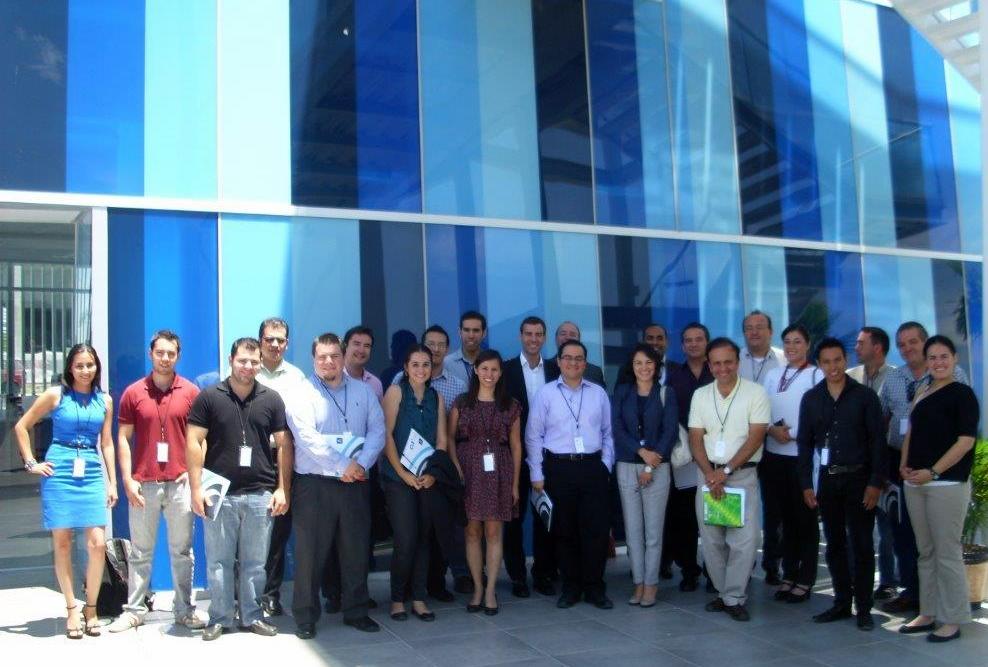
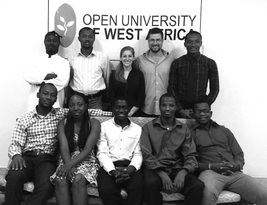
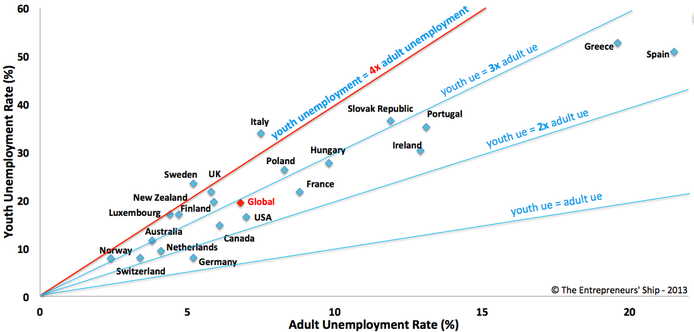
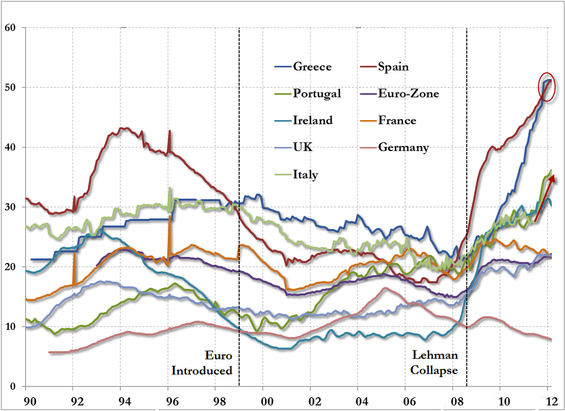
 RSS Feed
RSS Feed
